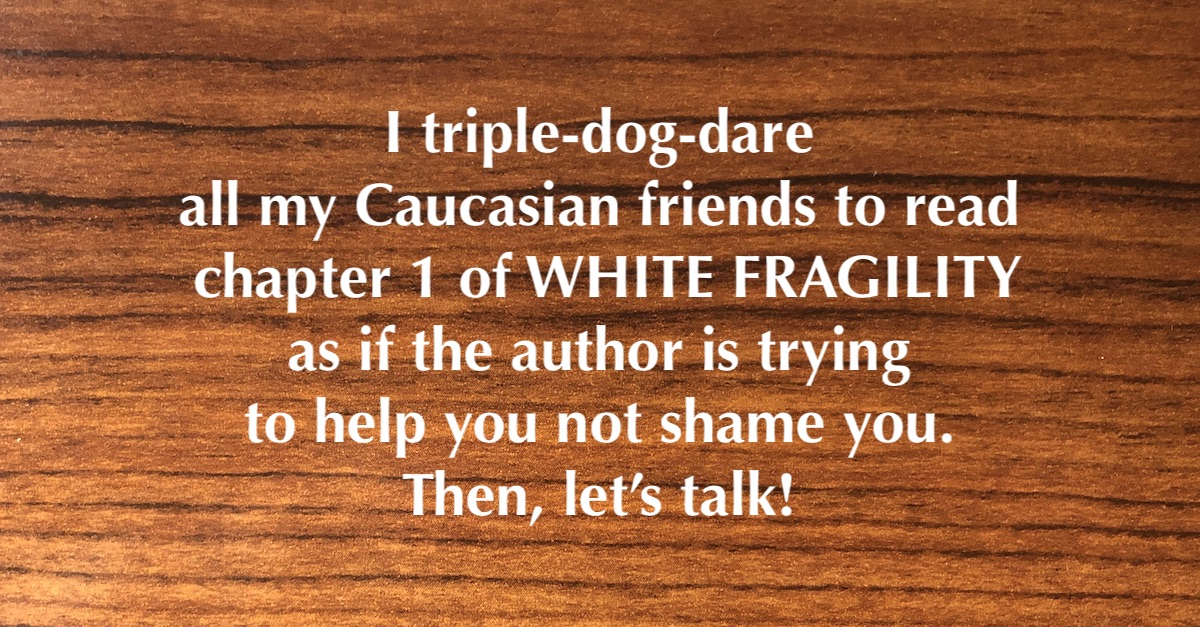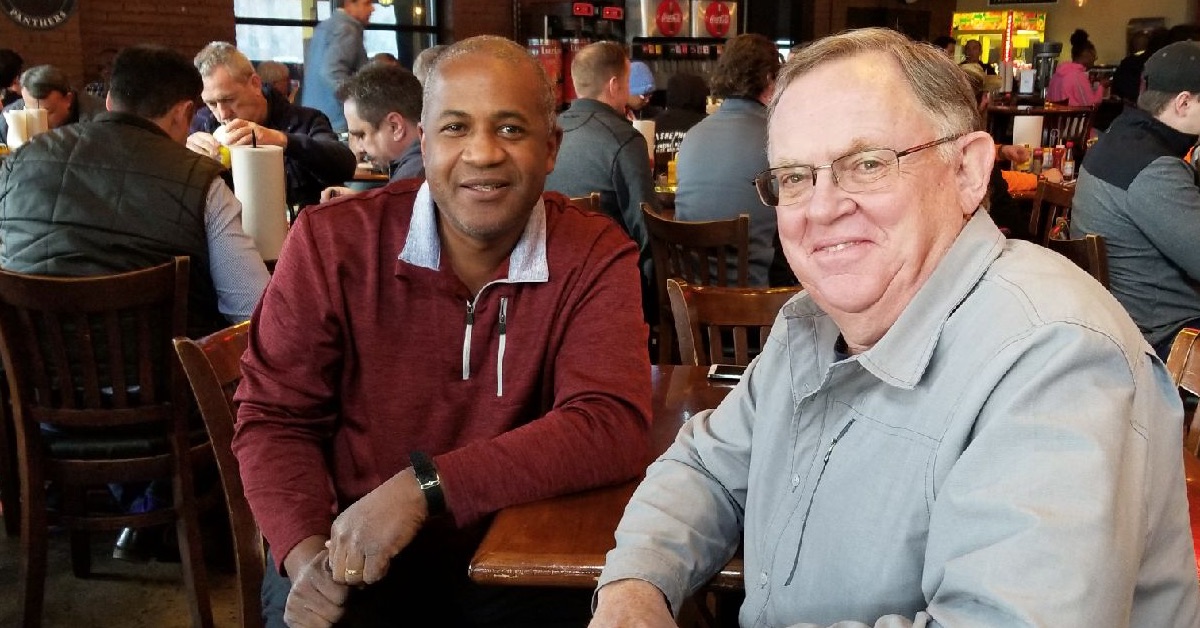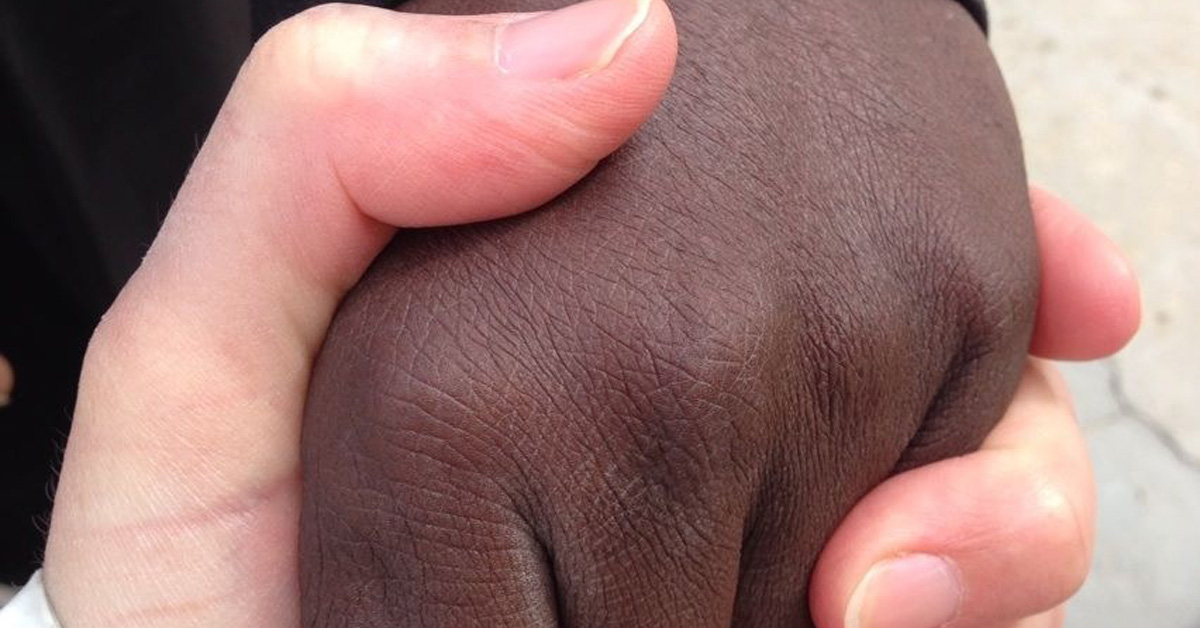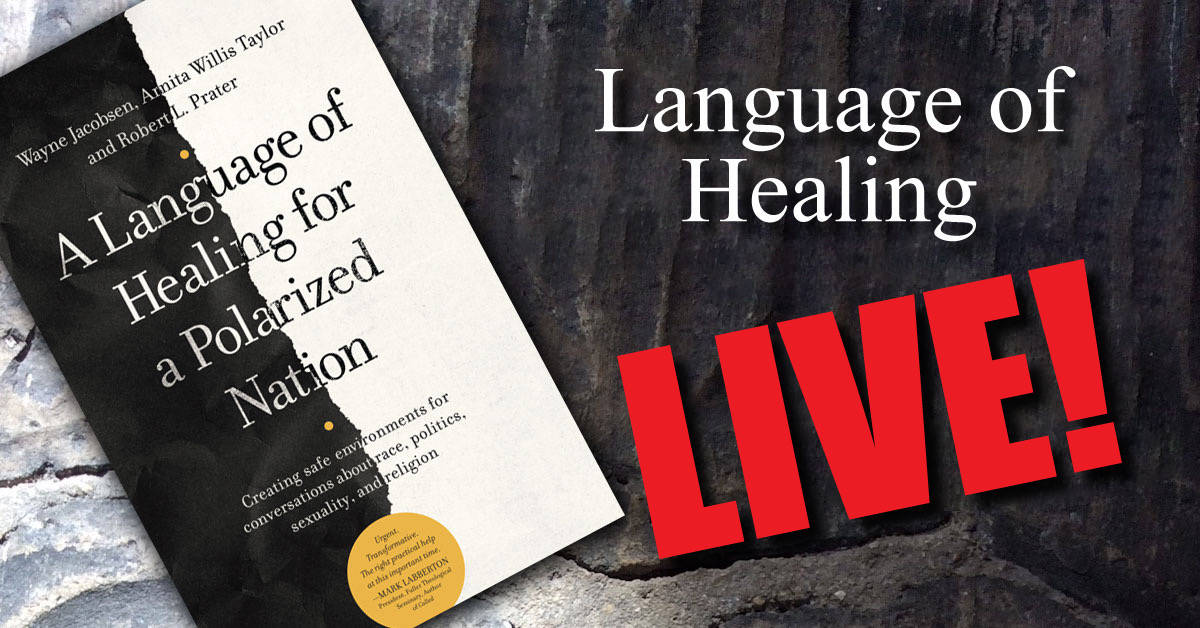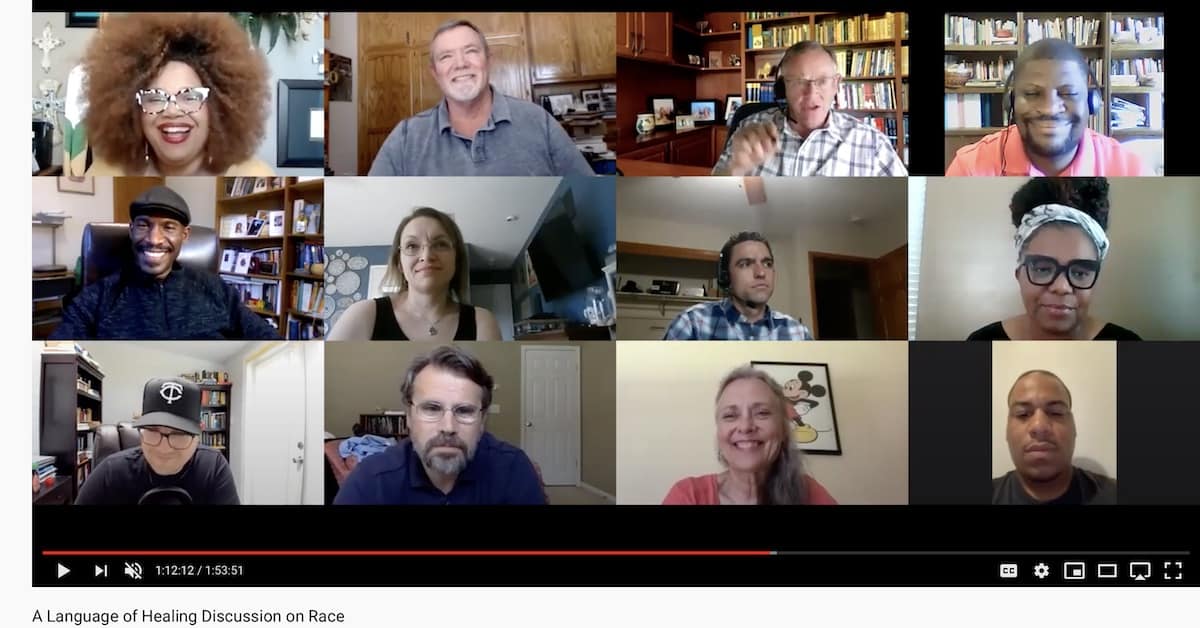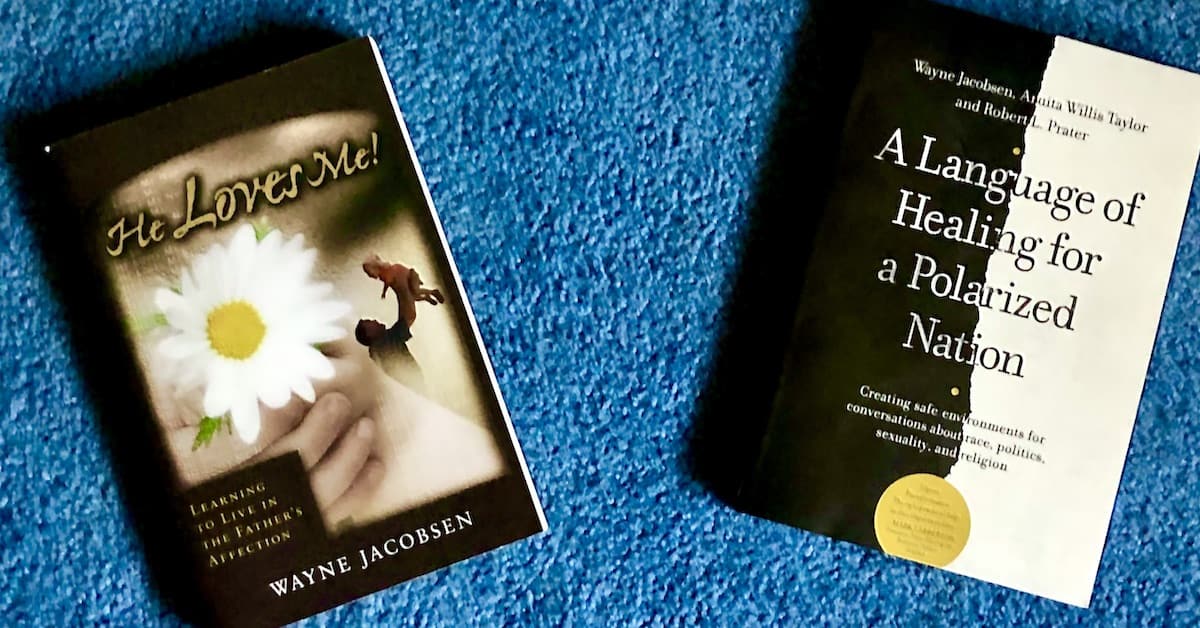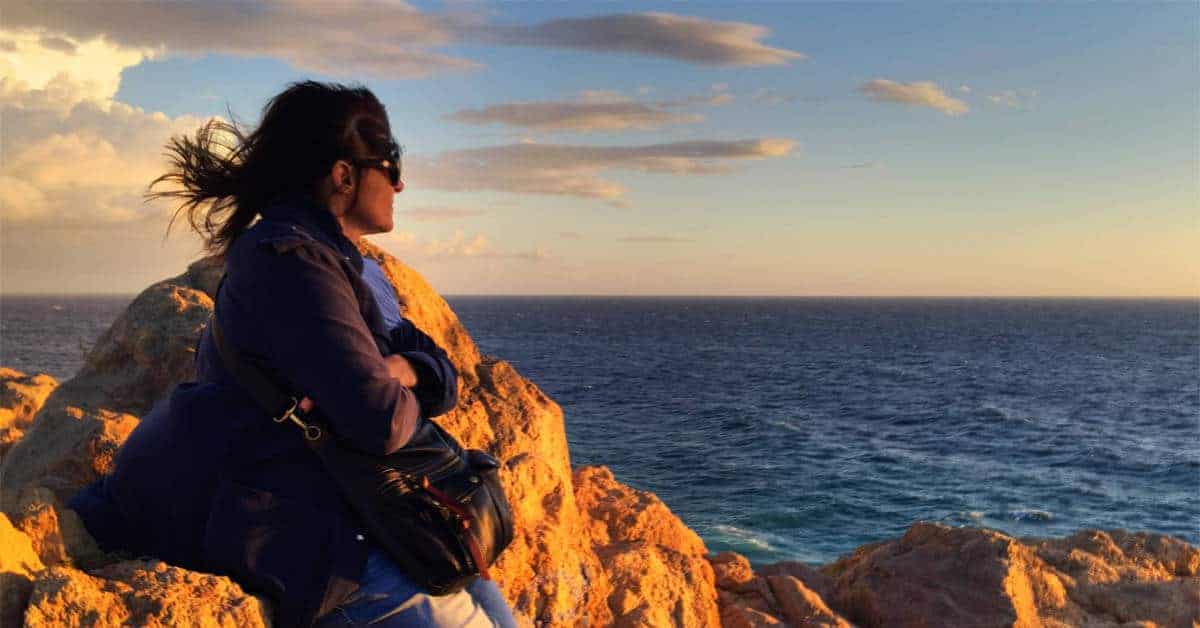There Is a Better Conversation Going On
Yes, I wanted to get your attention. I don’t triple-dog-dare anyone to do anything, though I would love for you to think through the issues the author lays out in that chapter. Please don’t let the media that amplifies the most extreme voices on the left and the right rob you of the important conversations going on about the inequities of race that still persist in our society. One of the lessons we encouraged in A Language of Healing for a Polarized Nation is not to compare the worst actions of those who disagree with you with the best intentions of those who do.
This is a good time for softer hearts not harder ones, for listening instead of pontificating. Underneath the diatribes in the media—social, mainstream, and Fox—people are exploring what it is to care for others beyond what we might consider as “their tribe.” White Fragility, the book I referenced above, is a difficult read if you’re white. I don’t love everything about this book, and some of her terminology can be off-putting, but hopefully, it will make you think. It helped me understand more why we have such a hard time communicating about this, and why those who look like me have a hard time talking about the issues that underlie racial inequities in our culture.
I know some of you grow tired of my musings on this. I like this space to help encourage people on their journey of leaning in more deeply to Jesus and to be less influenced by the world’s ways. Some have called me “liberal” and accused me of being a Democrat. I hope you can appreciate that I’m not playing politics here. I’m not pro-Republican or pro-Democrat, and I think both parties are out to exploit the tensions in our society for whatever political power (and money) they can hope to gain. They are both a huge part of the problem, and I don’t look for them to be the solution.
So, I reject the binary constructs that both of them try to force on us. Life is more nuanced than they lead us to believe. I can bear witness to the injustices some people groups suffer in this world and be a voice for more understanding and compassion without endorsing all their agenda or approving of violence or looting. I can decry racist acts when they happen, and still support the men and women in blue who put their lives on the line to make us a safer society. These are our first responders who valiantly rush into the most dangerous situations to disarm evil and protect the good and, if not, they should be held to account. Society in a fallen world cannot exist without them.
I write because I have good friends who are severely impacted by these issues, and silence is no longer an option, and hoping it will get better is not a strategy. What could be closer to Jesus’ heart than how we treat people who are different from us? Isn’t that what the Good Samaritan story was about? Our neighbor not only includes those who look like us or live in our neighborhoods but even more importantly, those who don’t.
My heart hurts when people who say they love Jesus are unaware of their blindness about racial issues. I saw this on FaceBook from a friend who attended the same congregation with me many years ago. I would love to be with her when her eyes are open to see just how arrogant and racist these words are.
For those of you drinking the white privilege hype, don’t be ashamed of your station in your God-given life. I know of plenty of African Americans who are privileged. You see no matter what you do, it won’t be good enough. The black community has to figure out they are not slaves anymore. Their hurt runs deep. Only God can truly heal their hurt. We can empathize, we can stand by them. We can love them, we can lift them up when they are down. What we cannot do is heal them. Unfortunately, they have leaders who are self-serving and have not led them to other ways of dealing with injustice. We see the agenda of hate, it’s time for our Black Americans to quit being used. It’s up to them. Meanwhile quit the white privilege narrative. It’s just an agenda of shame. I’m not ashamed of who God made me to be. Don’t slap God in the face by now denying who you are. Quit your bitching….
Of course, she doesn’t see herself as a racist and made enough “loving statement” to keep herself deluded. I hope people like her will listen to what is really being said by those around us in real pain. We can do better. I’m seeing it happen all around me. The reason I’m in this conversation is for people like those below who are finding a different way to see the world around them, and hopefully, be more redemptive in it.
From someone I haven’t met, who read my latest book:
I finished A Language of Healing for a Polarized Nation. I didn’t realize how much my pride and “search for the truth”, led me to justify the sufferings of others. I felt that if I admitted white privilege/advantage, I was admitting that I was inferior and less than. I justified myself and tried to “correct the narrative”. But I had never really pondered how Jesus would walk in this time. I started to feel compassion, empathy, and no longer concerned for my own “rights”. It is eye-opening to me, how much I staked my identity on being a conservative, American, instead of a son of God, who is walking in relationship with Father. I am starting to see just how dangerous tribalism is and how harmful it is to our brothers and sisters. Unfortunately, it has taken a long time for me to see, but I am excited to see the adventures that Father and I will have together, as I participate in this process of healing.
From someone in a small mountain community in the Colorado Rockies:
I wanted to express my thanks to you, Arnita and Bob for the amazing book The Language of Healing. You all not only created the best format for a multi-author book I have encountered but created a space where people can have meaningful conversations that can transform lives. The message of the book was something we so desperately need in our culture and has only been magnified over the past few weeks. Imagine if more of us had been reaching outside “our group” and been listening to understand others over the years. These types of conversations might have led directly to the saving of people’s lives. I am hopeful that recent tragic events will spur more of us on to form relationships with those who are different than us. And from my perspective it is on the individual and community level where real transformation will take place. Your focus on personal connection and the practical steps you provided in each chapter is what gives me the hope that change can really happen. I found the book engaging but challenging in many good ways. And where Papa has been directing my attention is on engaging and showing empathy for working class folks in my community (almost entirely white) who hold very different political, economic and racial views.
From a twenty-one-year-old woman:
The murder of George Floyd did not happen in a vacuum. Rather, the tragedy was a symptom of a much larger, multifaceted problem. I like to use a pyramid analogy to think about racism here in America. The act of murder is at the top point of the pyramid. Individual, perhaps seemingly “smaller” acts of racism lay the foundation of the pyramid. These smaller acts include implicit biases, racial slurs, stereotypes, other microaggressions, and color-blindness. These “small” acts fit into the pyramid and eventually lead to devastating, tragic, life-sucking acts such as the murder of George Floyd. The murder of George Floyd was simply a bubbling over that reveals the race culture in American that often lies beneath the surface.
The thing is, these “small” acts truly aren’t so small. Each one contributes to a negative racial culture. Each one is damaging. Furthermore, silence is also damaging. While I may not use a racial slur myself, if my friend says one, and I don’t use my agency to speak up for my black brothers and sisters, I am creating damage too. My silence implies complicity and consent.
As a white female, I am striving to do what I can to disrupt the culture of silence and to help dismantle America’s negative racial culture starting with destroying the bottom of the pyramid. If more of us can speak up, using our voices to proclaim the equal worth of every human being, I have hope that we can crush the pyramid before it reaches the top.
Finally, while I want to use my voice to speak out against all forms of racial discrimination, I also want to be an empathetic listener for my black brothers and sisters. I will never truly fathom what it is like to a black person in America. And I should never pretend to.
From an African-American mother of two young boys in the Carolinas:
Then came the riots. Pain and frustration followed. This is not the way to solve it. But I get the pain! I can see why some feel like enough is enough! But I know in my heart violence is not the answer. I know my hope is in Jesus. I can quote scriptures to back that up, but sometimes life sucks. And I’m learning to sit in the tension of the pain and tears and being honest with that, knowing that Jesus is right there with me. He’s weeping too and understands my pain.
My husband and I have had some very interesting conversations with our respective friends over the last week. They have been so draining and all consuming, but mostly positive and definitely worth it. I’m thankful that my friends have felt comfortable enough to share and want to discuss. We are doing deep. I even had one friend who said that her eyes were open to systemic racism for the first time. I’m shocked, but so grateful! I listened to more of The Language Of Healing today and it’s been so good to get back into it. I have the book and the audible version. What an on-time book! So grateful that the three of you followed the Holy Spirit’s lead to put that together. You complement each other super well and each brings something uniquely important to the table. It’s beautiful.
I’m taking a moment to share this because I want to say thank you. Thank you for being in my community. Thank you for giving me hope. That you are willing to use your leverage and possibly lose friends in order to speak up on behalf of those whose voice goes unheard. Human dignity is human dignity. Period.
We can do better than the options the media give us. Find your way into new relationships laced with compassion and the willingness to understand. Don’t just look for voices that only confirm what you already think. Read and explore outside your comfort zone and see what Father might want to shift in your thinking. If nothing else, your comfort zone will expand, and you’ll be a safer place for people to approach.




